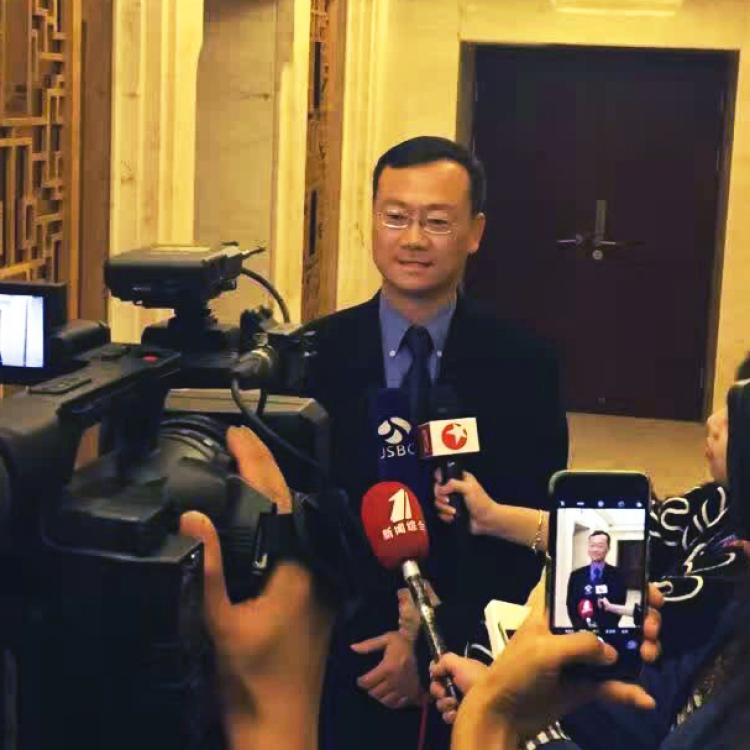CU researchers' pollutant-tracking system wins gold at World IoT Expo

Professor John Zhai speaking with news media at the World IoT Exposition in China
An urban pollutant-tracking system created by architectural engineering researchers at CU Boulder recently received a gold award at the 2016 World Internet of Things (IoT) Exposition in Wuxi, China. The project was one of 10 new technologies to win.
Professor John Zhai and former PhD student Yu Xue, now a faculty member at Dalian University of Technology in China, originally developed the system to detect contaminant sources inside buildings using a limited number of sensors. By taking into account the aerodynamics of the building’s heating, cooling and ventilation, the system was able to accurately pinpoint the source of a bacterial infection in a Hong Kong hospital.
The two decided to adapt the system to outdoor environments after Zhai began getting requests from cities in China to help them identify causes of their air-quality issues.
“People believed it was combustion for heating, but it was happening before winter,” he said, adding that cities would sometimes take steps like shutting down factories, only to find it did not solve the air-quality issues.
Using the system outside requires two steps. First, they use data from existing weather and air-quality monitoring stations to narrow down the area of the city where the pollutants originated from. Then, they make three stops in that area with a set of vehicle-mounted sensors to determine the exact source locations.
Zhai explained the placement of buildings can cause pollutants to get trapped in a vortex, which means their tracking system can be used to help with effective urban planning.
“The technology matches the needs in China so well,” he said. “We’re applying for the patent and working with companies that can already see the market.”
The World IoT Expo was jointly hosted by the Chinese Ministry of Industry and Information Technology, the Chinese Ministry of Science and Technology, and the Jiangsu Provincial People’s Government. More than 2,000 politicians, business leaders and experts from more than 20 countries and regions shared practices on topics such as smart manufacturing, smart environmental protection, smart health care, information security, big data and finance.


